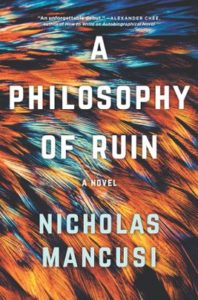If you ask me, every season is a good season for reading. But there’s something about summer that particularly begs a reading list—the long days, the long weekends, the promise of beaches and poolsides and front porches (and all of the trains and planes you have to take to get to said beaches), all of which are vastly improved by a good book. Plus, you know, everyone’s doing it. So I hereby present the Literary Hub staff’s most anticipated books of the season, both fiction and nonfiction. Which books are you looking forward to most? Let us know in the comments.
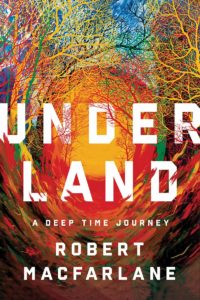
Robert Macfarlane, Underland (W.W. Norton, June 4)
In a stunning exploration of the subterranean, Macfarlane asks us to bear witness to the underworlds we can see—laboratories, storage spaces, fossilized remains—and those that have played a more abstract role throughout human history. Macfarlane looks at the ways humans use the underland “to shelter what is precious, to yield what is valuable, and to dispose of what is harmful,” along with the larger implications of each of those approaches.
–Corinne Segal, Senior Editor
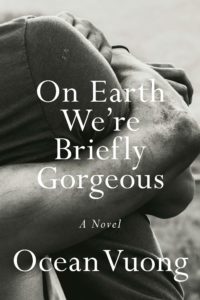
Ocean Vuong, On Earth We’re Briefly Gorgeous
(Penguin Press, June 4)
Celebrated poet Ocean Vuong’s first novel is almost the Socratic ideal of a poet’s novel: it’s lyrical, semi-autobiographical, sexy, and almost unaccountably lovely, despite the rough edges of the story it tells, and the real trauma it encompasses. Just the way Vuong observes his harsh world—as if every charred detail were worthy of meditation, and maybe it’s so—is moving enough, but throw in a doomed love story like this one and there’s really no coming back.
–Emily Temple, Senior Editor
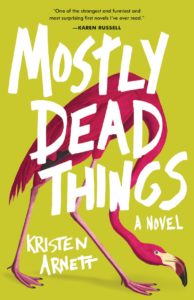
Kristen Arnett, Mostly Dead Things
(Tin House, June 4)
Beloved librarian and Lit Hub columnist Kristen Arnett has a novel coming out! The premise is dark (Jessa takes over her family’s taxidermy business after her father commits suicide) and weird in a very specific way (once again: family taxidermy business), and I’m a sucker for strange family tragedy stories. I have a feeling it won’t be too depressing a read, though; Kristen Arnett’s writing frequently has me in stitches (see: her Twitter and also this list of things library patrons have asked her for), so I’m stoked to see her humor on display in this debut novel.
–Katie Yee, Book Marks Assistant Editor
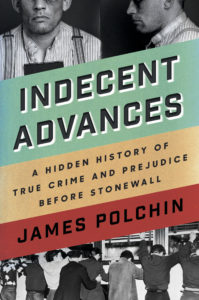
James Polchin, Indecent Advances
(Counterpoint, June 4)
Polchin’s harrowing account of the history of violence against queer men hits shelves on the eve of the 50th anniversary of the Stonewall riots. It’s perfect timing for a book that dives deep into these never-before-told true crimes, and looks at the power mainstream messaging had on both the violence and the mounting resistance. Resurrecting a forgotten era of queer history, Polchin masterfully weaves brutal true crime research with critical analysis of the social history, exploring the way the media and nascent psychological theories were weaponizing prejudice and perpetuating a deviant stereotype of gay men.
–Camille LeBlanc, CrimeReads Editorial Fellow
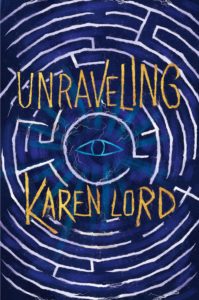
Karen Lord, Unraveling
(Daw, June 4)
Karen Lord’s latest is just as impossible to define as her previous work; Unravelling blends murder mystery, Caribbean mythology, and archetypal journeys for what may just be the most original crime novel of the year. Dr. Miranda Ecouvo has just put a serial killer away after committing seven murders, each more bizarre than the previous. When she’s thrown into the spirit world after an unusual confluence of events, she soon realizes that the real killer is still out there, and teams up with two brothers, Chance and Trickster, to hunt down the true culprit before he can achieve immortality.
–Molly Odintz, CrimeReads Associate Editor
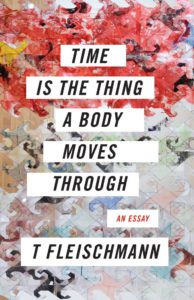
T Fleischmann, Time Is the Thing a Body Moves Through
(Coffee House, June 4)
T Fleischmann’s long essay walks through the worlds of art criticism, memoir, and poetry as it looks at the work of artist Felix Gonzalez-Torres alongside a more personal story about transition and identity. Fleischmann’s path through self-expression, gender fluidity, and self-understanding is well worth our attention.
–Corinne Segal, Senior Editor

Jean Kwok, Searching For Sylvie Lee
(William Morrow, June 4)
A disappeared daughter, the tender tension between sisters, the secrets an immigrant family keeps from one another—what doesn’t this story have? When Sylvie goes missing on a trip to visit her dying grandmother, her younger sister has to step up and retrace her steps. With Searching for Sylvie Lee, Jean Kwok calls into question cultural identity and the ways families remember and relate to one another. I’m hooked!
–Katie Yee, Book Marks Assistant Editor

Emily Guendelsberger, On the Clock: What Low-Wage Work Did to Me and How It Drives America Insane
(Little, Brown, July 16)
The gig economy is no longer a millennial oddity (it never really was) but rather one of the very shaky pillars upon which American economic growth relies. As late capitalist workplace precarity becomes a fact of contemporary life, stories of that experience (published in books!), are beginning to emerge, joining a rich American tradition of first-hand labor narratives, some of which actually made a difference at a policy level. Emily Guendelsberger’s On the Clock is among the best of these new accounts of multibillion dollar corporations maximizing profit at the expense of their workforce. In Guendlesberger’s case, there are some familiar villains—Amazon and McDonald’s—along with a call center job, but what really separates this diaristic account is that it’s funny. Which I suppose you have to be when you’re doubleshifting in an Amazon warehouse a month before Christmas and the vending machines are stocked with painkillers and you don’t even know if you’ll have a job in the New Year. Haha!
–Jonny Diamond, Lit Hub Editor-in-Chief
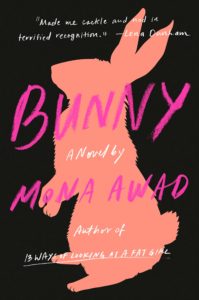
Mona Awad, Bunny
(Viking, June 11)
I first picked up this novel because of the jacket copy, which described it as “The Vegetarian meets Heathers” (I mean, right? Some publicist deserves a raise), but I admit that I was only cautiously excited. Almost all “x meets x” designations are misleading or reductive or just plain wrong—my apartment is strewn with half-read Nabokovian, The Secret History-esque contemporary novels that just didn’t hack it, and made themselves worse by trying too hard. But I was shocked and delighted to find that Bunny really is something close to The Vegetarian meets Heathers—and also, of course, something all its own: a clever, contemplative, truly absurd campus novel that manages to strike to the truth of things with a hot blade of magic. Reading it reminded me of biting into a Warhead, so that the flavor you get is both sweet and mouth-scorchingly sour at once. If you have never tried this, you simply might not be cut out for this novel. Poor, poor Bunny.
–Emily Temple, Senior Editor
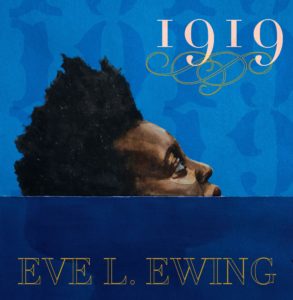
Eve Ewing, 1919
(Haymarket, June 11)
Dr. Eve L. Ewing’s third book and second poetry collection explores the “Red Summer” of 1919 and specifically the Chicago Race Riot. Centered on the inner lives of Black individuals, real and/or imaginary (who’s to say?), in 1919 Chicago, the poems in 1919 ask how far we’ve come, and question ideas of progress and of thriving and surviving. On the centenary of the Red Summer, in an America hardly less violent and anti-black, Ewing wields a kaleidoscopic Afrofuturist style to illuminate a crucial piece of history and to imagine a path forward.
–Kevin Chau, Editorial Fellow
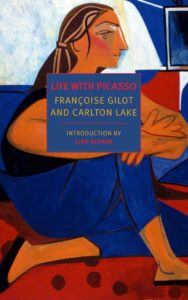
Françoise Gilot and Carlton Lake, Life With Picasso
(NYRB, June 11)
Françoise Gilot met Pablo Picasso at 21, when she was a young painter, resisting the confines of a strict father, and he was 61, fully established as one of the most sought-after artists in the world. Her memoir of the years that followed and all they included—from their time in Nazi-occupied France to their growing bond, the two children they had together, their respective work as artists, and their eventual estrangement—is a fantastic read. Now, NYRB is reissuing the book 55 years after it was first published, and reading it in 2019 feels right; it’s so satisfying to read the assertions of a woman who will not let herself be defined by her proximity to a well-known man.
–Corinne Segal, Senior Editor
Nicholas Mancusi, A Philosophy of Ruin
(Hanover Square Press, June 18)
A big-hearted, darkly comic novel about a young philosophy professor with a disintegrating personal life who finds himself in the middle of high-octane drug-running operation, Mancusi’s debut—a marvelous hybrid work of propulsive storytelling and philosophical inquiry with a deeply empathetic core—is deservedly being compared to Breaking Bad and the writings of Denis Johnson.
–Dan Sheehan, Book Marks Editor
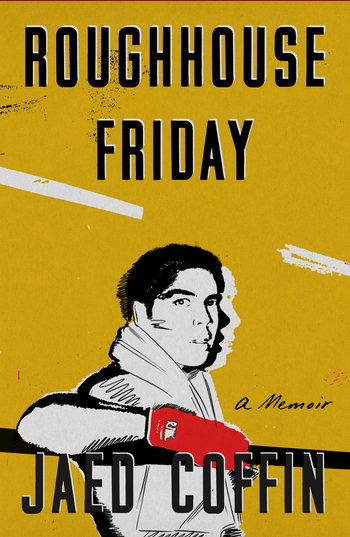
Jaed Coffin, Roughhouse Friday
(FSG, June 18)
There’s a rich history of writers taken with the sport of boxing (or sweet science, if you prefer): Hemingway, Robert Graves, Camus, Joyce Carol Oates… But the jump from the ring to the page is a little less common, and now we have Jaed Coffin to add to that short list. Lost in a post-collegiate drift, Coffin found himself drawn to the sounds of a boxing gym in Sitka, Alaska, where he quickly discovered a purpose-driven community of roughhousing fighters. What follows is the engaging memoir of a young man grappling with the complexities of his mixed-race family, while coming to terms with his father’s rigid ideas of what makes a man.
–Jonny Diamond, Lit Hub Editor-in-Chief
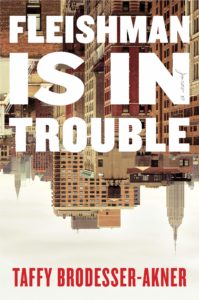
Taffy Brodesser-Akner, Fleishman Is In Trouble
(Random House, June 18)
Is this job just a platform for me to talk about how much I love Taffy Brodesser-Akner’s writing? I guess so! Work/life balance! Having it all! Anyway, as I have said before, her debut novel is wonderful. The characters in Fleishman Is in Trouble are so well-drawn that at points the novel reads like one of Brodesser-Akner’s masterful profiles, and the moments of almost-too-real recognition I felt throughout were . . . plentiful. Read it on a beach. Or in your leather wingback chair with a hunting dog at your feet. Both are fine places to read.
–Jessie Gaynor, Social Media Editor
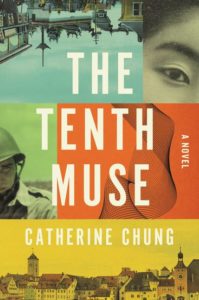
Catherine Chung, The Tenth Muse
(Ecco, June 18)
The Tenth Muse, the second novel by Catherine Chung—whose 2012 debut, Forgotten Country, was an achingly beautiful portrait of grief, buried secrets, and familial obligation—is the story of a young mathematician determined to conquer the greatest unsolved mathematical problem of her time. In her quest, she turns to a theorem with a mysterious history that leads her deep into the past and forces her to rethink her entire identity. Chung is a dazzling, humane, and deeply thoughtful storyteller and I cannot wait to lose myself in the world of this intriguing new novel.
–Dan Sheehan, Book Marks Editor
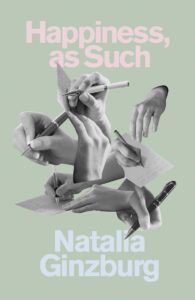
Natalia Ginzburg, tr. Minna Zallman Proctor, Happiness, As Such
(New Directions, June 25)
As tart and frank as a homemade limoncello, Natalia Ginzburg’s prose is the perfect vehicle for summer escape in a time of insanity. There would be no Ferrante had Ginzburg not written her great memoir, Family Lessons. Ginzburg traced her history to World War II, which she spent in Turin in the 1940s working at Einaudi, publishing Primo Levi and Italo Calvino, completing her second novel. “We cannot lie in our books,” she wrote then, “and we cannot lie in the things we do . . . perhaps that is the only good thing to come from the war.” And thus she began a career-long assault on the absurdity of norms in family life and in marriage. Across the 20th century, only Dawn Powell had more fun writing about unhappiness. This summer, New Directions is bringing back two of Ginzburg’s finest novels, The Dry Heart, a hilarious vivisection of domestic life, which first appeared in 1947, and Happiness, As Such, an epistolary comic novel about a young man who leaves Italy due to his political radicalism—leaving behind some everyday responsibilities: a lover, his mother, and a sister who has some questions for him. Both go down fresh and colder than cold, a shock of truth.
–John Freeman, Executive Editor

Kate Atkinson, Big Sky
(Little, Brown, June 25)
Jackson Brody returns! Kate Atkinson made waves in the world of espionage fiction with last year’s impeccably plotted and deeply atmospheric novel, Transcription, and now she’s headed back into procedural territory as Jackson Brodie, settled in a seaside village tracking down cheating partners and errant cats, begins to discover there is something deeply wrong with her new abode. Along with Tana French, Kate Atkinson is one of the few writers equally beloved to literary fiction readers and genre fans, and we can’t wait to see what she does with her latest!
–Molly Odintz, CrimeReads Associate Editor
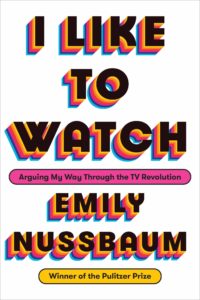
Emily Nussbaum, I Like to Watch
(Random House, June 25)
Emily Nussbaum empowered me to admit that I didn’t like True Detective and that I will always like Sex and the City. She’s also probably the smartest TV writer working right now, and she makes me feel smarter when I read her work, so I can’t wait to get my hands on I Like to Watch, her first book. I expect it to be brilliant, funny, generous, and incisive (in short, everything True Detective isn’t—DO NOT @ ME).
–Jessie Gaynor, Social Media Editor
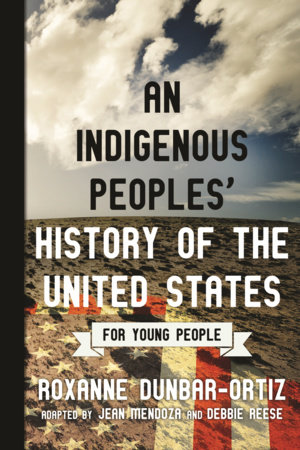
Roxanne Dunbar-Ortiz, An Indigenous Peoples’ History of the United States for Young People (Beacon Press, July 23, adapted by Debbie Reese and Jean Mendoza)
I have an eight-year-old son who is probably ready to take a crack at this contemporary classic of American history revisited. As both historian and human rights activist Dunbar-Ortiz is an important voice in the necessary and ongoing conversation about the settler-colonial culture that “made America great” in the first place. Beach reads for second graders!
–Jonny Diamond, Lit Hub Editor-in-Chief
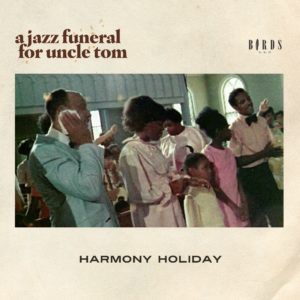
Harmony Holiday, A Jazz Funeral for Uncle Tom
(Birds LLC, July)
Harmony Holiday’s new poetry collection enacts a jazz funeral, a celebration of life, an improvisational, brassy moodsetter for the proper release of the soul from the body. Uncle Tom, that symbol of complicity, that mythical bootstraps figure, has died—or rather been killed and exorcised by the speaker of this book through alternating fragmentary dialogue and richly textured, rhythmically complex prose poems. Innovative, irreverent, and gleefully dissonant, A Jazz Funeral for Uncle Tom invites its reader to “purge through rehearsal” the “old songbook” of narratives imposed by the powers that be.
–Kevin Chau, Editorial Fellow

Adrian McKinty, The Chain
(Mulholland, July 7)
From one of contemporary noir’s most beloved practitioners, The Chain is a propulsive thriller with the kind of instantly compelling premise that makes a reader sit up straight and get ready to turn the pages. To get their own kidnapped children released, parents are being forced to kidnap other people’s children, extending the criminal “chain.” This is poised to be one of the most talked about novels of the summer, and will absolutely have you eyeing your friends and neighbors a little more suspiciously than when you began.
–Dwyer Murphy, CrimeReads Managing Editor
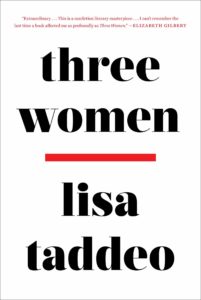
Lisa Taddeo, Three Women
(Simon & Schuster, July 9)
I don’t read very much non-fiction (mostly because real life is just the pits and I prefer not to think about said pits when I’m reading books). Three Women, though I certainly wouldn’t call it escapist, is my favorite kind of non-fiction: absorbing, narratively compelling, and replete with portrayals of complete humans. Lisa Taddeo spent eight years with the three women whose stories she tells here, and the resulting portrait of their sex lives is completely riveting.
–Jessie Gaynor, Social Media Editor
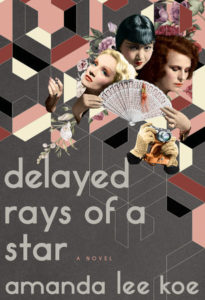
Amanda Lee Koe, Delayed Rays of a Star
(Nan A. Talese, July 9)
In Amanda Lee Koe’s lush historical debut, a chance meeting between Marlene Dietrich, Anna May Wong, and Leni Riefenstahl, captured in a famous photograph, becomes a jumping-off point for a literary investigation of each woman’s life and the part each played in 20th century history. An empathetic and devastating portrait of women equally defined by their passions and their politics.
–Molly Odintz, CrimeReads Associate Editor
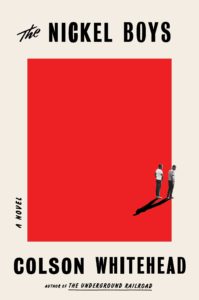
Colson Whitehead, The Nickel Boys
(Doubleday, July 16)
It’s safe to say almost everyone you know is eagerly awaiting Whitehead’s follow-up to his Pulitzer Prize-winning, National Book Award-winning, #1 New York Times bestseller The Underground Railroad—and the wait is nearly over. The Nickel Boys is set in an almost unspeakably brutal juvenile reform school in Jim Crow-era Florida, which two young black boys—one an optimist, the other streetwise and cynical—try to literally survive. Despite the dark themes, I predict this will be the book on everyone’s bedside tables this summer.
–Emily Temple, Senior Editor
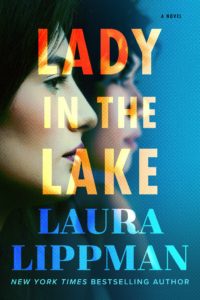
Laura Lippman, Lady in the Lake
(William Morrow, July 23)
Lippman’s latest takes us back to 1960s Baltimore for a welcome return to her old haunts after several stellar standalone crime novels. When a white middle-class housewife leaves her comfortable existence to investigate the disappearance of a young African-American woman, she encounters life at the margins for the first time and delves deeper into a mystery that may involve more than meets the eye, in what promises to be one of the year’s best noir releases.
–Dwyer Murphy, CrimeReads Managing Editor
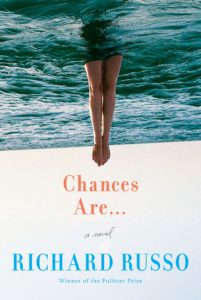
Richard Russo, Chances Are…
(Knopf, July 30)
Richard Russo is often compared to Dickens, to whom he clearly owes a debt, but the ghost hovering over his fabulous new novel, Chances Are . . ., feels more like Sam Shepard. Three Vietnam War era classmates get together on Martha’s Vineyard for a high school reunion at age 66 to relive the past. At first this feels like familiar territory. Indeed, Tim O’Brien wrote that novel (July, July). But here the expected layers peel away, and mingling among the regrets of that time, the war, the feelings that maybe they’ve all traveled too far from their working class roots, lies a cold case, and some questions about love that cut to the heart of how these men have spent their hours on earth. Next to Colson Whitehead’s new book, there’s not a better paced summer read in 2019.
–John Freeman, Exectutive Editor
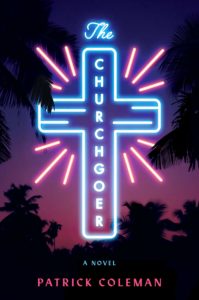
Patrick Coleman, The Churchgoer
(Harper Perennial, July 30)
Patrick Coleman combines evangelical malpractice, noirish cynicism, and seedy southern California underworlds in this debut literary noir. When Mark Haines, a former youth pastor who has succumbed to a more hedonistic life, meets a young drifter who seems inauspiciously connected to a failed robbery, he suddenly finds himself captivated by the young woman, following her trail into the depths of California drug trade and straight into the Evangelical megachurch of his past. With a palpable nod to Raymond Chandler, this forceful mystery is an exploration of religion, responsibility, and the inverted forces at play in the modern world.
–Camille LeBlanc, CrimeReads Editorial Fellow
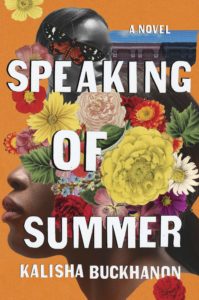
Kalisha Buckhanon, Speaking of Summer
(Counterpoint, July 30)
Buckhanon’s literary psychothriller is a deeply felt, searching portrait of twin sisters, one of them mysteriously disappeared from the Harlem brownstone where they live, the other left behind and forced to deal with the inexplicable vanishing, eventually driven by her grief and confusion into launching an investigation of her own. Buckhanon’s previous work Upstate was an inaugural selection for the National Book Foundation’s Literature for Justice Program.
–Dwyer Murphy, CrimeReads Managing Editor
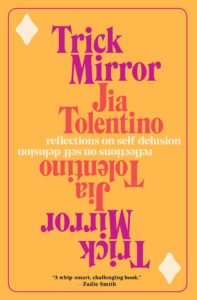
Jia Tolentino, Trick Mirror: Reflections on Self-Delusion
(Random House, August 6)
Whether she’s penning incisive pieces about sexual assault and the #MeToo movement, critiquing contemporary fiction and film, or considering the authoritarian soul of Thomas the Tank Engine, New Yorker staff writer Jia Tolentino is physically incapable of writing an uninteresting piece. A razor-sharp literary critic, dazzling essayist, and shrewd observer of millennial cultural movements, Tolentino’s nonfiction writing is truly mesmeric. Trick Mirror, her hotly-anticipated debut essay collection, demonstrates why she has been hailed by many as this generation’s Joan Didion.
–Dan Sheehan, Book Marks Editor
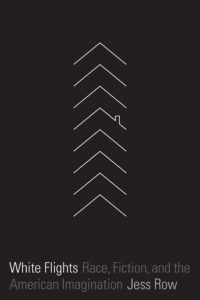
Jess Row, White Flights
(Graywolf Press, August 6)
Honestly, it’s pretty rare that I can’t wait to get my hands on a book of literary and cultural criticism, but White Flights is really calling out to me. It seems like it might come closer to answering the questions around race that were tip-toed around in college writing workshops. Good! An examination of gentrification in fiction, Jess Row’s book promises to dive into the works of Don DeLillo, James Baldwin, and everyone in between to look at the way writers approach race and take up space on the page.
–Katie Yee, Book Marks Assistant Editor
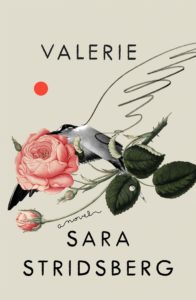
Sara Stridsberg, tr. Deborah Bragan-Turner, Valerie
(FSG, August 6)
Thirty some years ago, before local billionaire Marc Benioff gave it a new lease on life as “step-up” housing for the formerly homeless, the Bristol Hotel in San Francisco’s Tenderloin was the last stop for many of the city’s most destitute. Among them was Valerie Solanas, the radical feminist author of SCUM Manifesto and other writings. The shooter of Andy Warhol, Solanas died there penniless of pneumonia in April of 1988 in a room apparently covered in paper. Sara Stridsberg’s Nordic Prize Council winning novel Valerie begins in that room at the moment of Solanas’ death and accordions out in dazzling spirals. Drawing on Stridsberg’s strength as a playwright, the book proceeds in short chapters that reimagine Solanas’ childhood and her life in college working in an animal testing lab. It’s hard to tell what is real and what is not, a narrative strategy in keeping with the book’s subject, Solanas’ performance of herself. In other moments, Stridsberg boldly creates Solanas’ court-cases, and even conducts imaginary dialogues with the figure herself, who speaks back with bitterness and sometimes poetic vision. This is a powerful, strange, radical book, driven by vivid and foul vignettes, best read in the fever of a long hot summer.
–John Freeman, Executive Editor

Laura McHugh, The Wolf Wants In
(Spiegel & Grau, August 6)
Laura McHugh’s foray into southern gothic is a journey into the depths of rural Kansas, a hotbed of opioid and crime, in which a woman investigates the suspicious and untimely death of her brother. Meanwhile, an 18-year-old dreams of leaving Kansas and escaping the crimes of her family. This atmospheric thriller finds the two women grappling with the weight of family history, loyalty, and justice, and is sure to grip anyone looking for a finely drawn, character-driven mystery that delves into the realities of rural America.
–Camille LeBlanc, CrimeReads Editorial Fellow
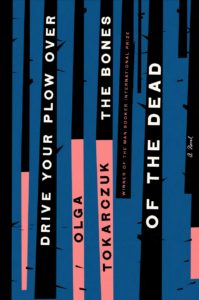
Olga Tokarczuk, tr. Antonia Lloyd-Jones, Drive Your Plow Over the Bones of the Dead
(Riverhead, August 13)
An elderly vegetarian seeks to discover who is murdering the windbags who run a small Polish town. While not as wide-sweeping a novel as Tokarczuk’s remarkable Man Booker International winning Flights, it’s a dark and fun mystery, a feminist comedy, a primer on existentialism, and a weirdly perfect summer read.
–Emily Firetog, Deputy Editor
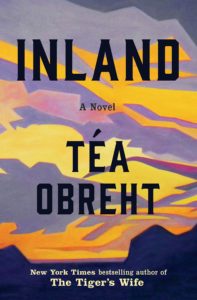
Téa Obreht, Inland
(Random House, August 13)
Like most people in the English-reading world, I have been waiting patiently (sometimes not that patiently, though) for Téa Obreht’s follow-up to The Tiger’s Wife for almost a decade. It is finally here, and I am happy to inform you that it does not disappoint. Inland is an epic American story of drought, ghosts, strong women, camels, and the inevitability of change; most impressively, it showcases not only Obreht’s masterful storytelling, but her uncanny ability to make a far-flung world feel lived-in, complete, and intoxicating. Every page is a triumph—even if you don’t think you like Westerns. Trust me, this book will make you a believer.
–Emily Temple, Senior Editor
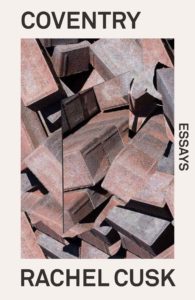
Rachel Cusk, Coventry: Essays
(FSG, August 20)
If you, like me, loved the Outline trilogy for Rachel Cusk’s razor-sharp powers of observation and omnivorous intelligence, then you’ll be just as excited as I am to see her unleash those considerable gifts in the essay form. From motherhood to marriage, feminism to art, Coventry showcases one of our era’s most urgent voices asking our most pressing questions.
–Emily Firetog, Deputy Editor
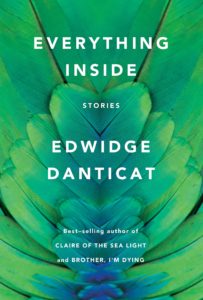
Edwidge Danticat, Everything Inside
(Knopf, August 27)
From the critically acclaimed author of Krik? Krak! and Brother, I’m Dying comes this new collection of eight stories that explore, all at once, the full scope of human experience—birth and death, bonding and separation, change and stasis, and the tragedies of love. Vast, moving, and intimate, Everything Inside tackles head on the complexity and impossibility of feeling.
–Kevin Chau, Editorial Fellow


